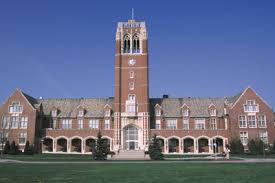Does JCU value adjunct professors?
Issue 1: Overworked and underpaid

Jan 31, 2019
Editor’s note: During the Fall 2018 semester, The Carroll News was alerted that adjunct professors wanted a public voice to address grievances they have with the University. There will be a weekly installment in the Campus section of The Carroll News that will focus on issues facing adjunct professors at JCU. This week’s installment discusses the topic of adjunct professors being overworked while not receiving a living wage.
Adjunct professors face several issues associated with their status as part-time employees at John Carroll University. One of the clearest problems is being overworked and undercompensated. Students expect the same availability and dedication from part-time professors as they do from full-time professors. The difference is that adjunct professors, although they want to, struggle to dedicate the same amount of time to the students due to working at multiple colleges and universities in order to maintain a livable wage.
Neil Slobin, an adjunct professor in the philosophy department, explained, “The average I use when asked what we make per course is $2,500 a course. So if you do the math — I teach now at two different schools, teaching five courses a term — making about $12,500 [each semester], so [that totals] about $25,000. Then I teach two courses in the summer. So basically I make $30,000 a year before taxes.”
Slobin continued, “When I tell people what I do they eventually say, ‘You must make good money,’ and that is just not true. Plus we get no benefits.”
Not only do part time professors receive low wages and no benefits, they also must find jobs at various colleges and universities throughout the Cleveland area just to have enough money to fulfill the basics of life. Slobin continued, “Five classes is standard, some teach seven, and I have even known some adjuncts who have taught nine. And they teach at several universities, not just one.” That’s because colleges and universities limit the number of courses a part-time person can teach. And full-time jobs are hard to find, as universities increasingly rely on part-time adjuncts.
This issue is not exclusive to philosophy adjuncts. David Young, a part time professor in the English department, remarked, “I am teaching at another school. I teach three classes and have about 50 students. Two [classes] here and one at Notre Dame.”
“The fact is that the pay is so dismal that people who are adjuncting for their livelihood have to cobble together five and six and seven classes a semester in order to make it work,” said Sara Schiavoni, an adjunct professor in the political science department.
In conjunction with low pay, many adjuncts cite the large amount of work as a problem: “In terms of overworked, I don’t think you’ll find an adjunct that isn’t in some way overworked. We have to jump from place to place. There is a lot of work that we put into our classes,” said Young.
In addition to the workload associated with classes, there is work that adjunct professors spend ample amounts of time doing for which they receive no compensation. Schiavoni stated, “I’ve directed honors theses. I’ve done four or five in my tenure here. It takes a lot of time, for which I get no compensation. Is it all about the money? No. But it is about recognizing the work being done on this campus with no compensation.”
She continued, “I think the misconception is that students don’t view us as full time or part time, they see us as the people who are engaging them in learning. So an extension of that is to help them in whatever way we can. And yet the system is not set up for adjuncts to be properly compensated for those outside duties.”
However, the adjunct professors that spoke to The Carroll News emphasized their dedication to and love for the students they teach.
“One of the reasons I got into this field is to work with students — that is the fun part. If my students need my help, I am going to do my best to provide it,” said Young.
“I could say no to the honors theses,” said Schiavoni. “But adjuncts, just like full time faculty, want to help our students. We are here because we love teaching and students.”












